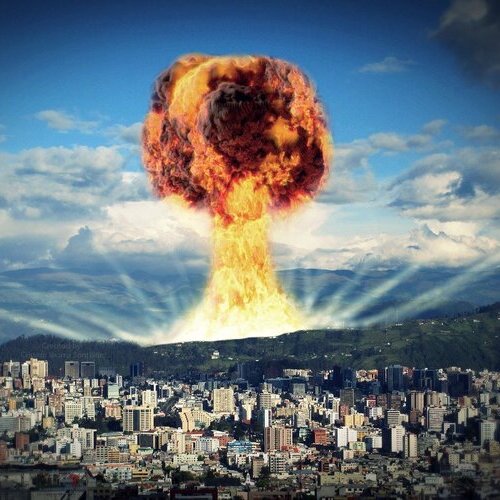It’s been over 75 years since “the bomb” was dropped on Hiroshima, ending World War II and entering the nuclear age. Since that time our world has lived with the constant threat that someone might use the nuclear option again. We have all come to understand what that means. One bomb can flatten a city, instantly vaporize people’s lives, inflict pain and suffering on survivor’s lives, and leave the region uninhabitable for years to come. Recently, as world leaders have denounced the war and pressure against Russia’s invasion of Ukraine has mounted, it was intimated by Vladimir Putin that he was keeping the nuclear option on the table. No doubt meant to strike fear in his detractors and project a position of strength, Putin’s willingness to make good on this threat remains to be seen.
While his statements are likely just a rattling of sabers, the sad truth is that many people put “the nuclear option” on the table in their personal relationships all the time. Sometimes we use it as a negotiating tactic to strengthen our position (like Putin). At other times, we use it to simply get out of something makes us unhappy, uncomfortable or angry. Your willingness to keep this option on the table comes to the surface every time you get in an argument with your spouse and bring up the word “divorce”. The nuclear button is pushed when you choose to leave a problem relationship with a friend or family member unreconciled and shut them out of your life. It is brought out when you get fed up with our boss or co-workers and choose to quit. And, unfortunately, it often is used in church settings as well. Instead of working for peace and unity among the body of Christ in our local churches, people often use the nuclear option and leave the church along with a wake of destruction behind them. What does our willingness to be so quick to use the nuclear option say about us? Here are three simple thoughts:
- A DEHUMANIZATION of your enemy – The bomb on Hiroshima was dropped by a bomber flying at 31,000 feet above the city. Other than a mushroom cloud that signified a successful detonation, those flying the plane never saw the destruction of a single human life that day. It wasn’t until the pictures came back from the ground that the devastation to lives was humanized. As long as we can dehumanize our enemy without dwelling on the life before God they represent, we can remain ready to bring out the nuclear option. By contrast, God is “longsuffering to us-ward, not willing that any should perish, but that all should come to repentance.” (2 Peter 3:9). God values every human life – and so should we.
- A DISREGARD for collateral damage – The unintended side effects of the nuclear option are often as bad as the damage to your primary target. Countless civilians were displaced and plagued by the effects of radiation poisoning for years after the bomb was dropped on Hiroshima. There are always unintended consequences from our actions. When divorce occurs, the children are affected for the rest of their lives. When faithful people leave a local church under bad circumstances, it causes the whole church to grieve and question. Taking the easy way out of a problem by using the nuclear option often leaves a trail of destruction behind and it deeply affects even those whom we didn’t mean to hurt for years to come.
- A DIRECT VIOLATION of God’s calling – As believers, we are called to peace. This is not just some lofty world peace that we speak of praying about such as in the conflict in Ukraine. It is a call to peaceful co-existence between all those whom God puts in our path of life. Take a moment to read Romans 12:9-21. These are God’s expectations of how we are to conduct ourselves in our relationships with other people (both friends and enemies). He tells us to “bless them which persecute you: bless, and curse not” (v.14), “be not wise in your own conceits” (v.16), “Recompense to no man evil for evil” (v.17), “as much as lieth in you, live peaceably with all men” (v.18). These key thoughts jump out of this passage making it clear that God does not approve of us using the nuclear option. It is a direct violation of God’s will.
By choosing to work through the problems in your relationships, finding forgiveness where wrongs have been committed, making compromises where needed, and choosing not to hold a grudge, you can effectively take the nuclear option off the table. There is no need for us to conduct ourselves like a tyrannical leader bent on war and destruction. We have a higher calling that is found in our pursuit of Jesus Christ. “Be not overcome of evil, but overcome evil with good” (v.21).

